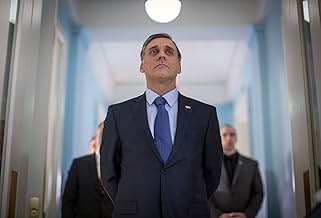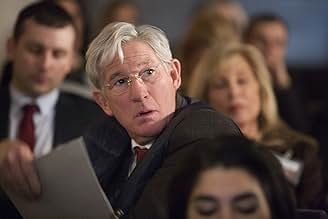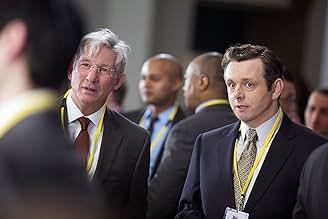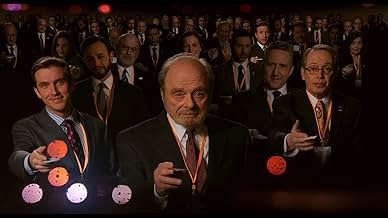If there is a theme in Norman: The Moderate Rise and Tragic Fall of a New York Fixer (2017) it may be that sycophantic fixers are everywhere. They are the loners who gravitate towards successful people, offering favours, dropping names, and arranging introductions to ingratiate and elevate themselves. They are driven by self-interest and thrive in communities of self-interest. Politics is full of them.
The 'fixer dynamic' drives the film's titular character, Norman Oppenheimer (Richard Gere). He is a lonely middle age Jew without visible means of support except for being a life-size parasite on other people. The archetype of a pathological liar and dreamer, his modus-operandi could be labelled corrupt in an ethics debate: he flatters, panders, and gives gifts to those richer or more powerful, always manouvering for return on investment. By chance, he latches onto low-ranking Jewish politician Micha Eshel (Lior Ashkenazi) and gifts him a pair of outrageously expiensive shoes. They lose contact, but Norman has bought the right to drop his name anywhere. Three years later, Eshel is elected Prime Minister of Israel and Norman attends the celebrations. They re- unite and Eshel repays Norman by inviting him into the tent of influence where he is quickly out of his depth. As an inveterate fixer, he builds a complex web of promises that mostly cannot be delivered. While he does some good for some people, his house of cards eventually collapses and we are invited to judge where moral culpability lies. For every successful Eshel there are scores of Normans.
Richard Gere's superbly enigmatic characterisation of Norman is the heart of this dialogue-driven film. He is irritatingly unlikeable, like a fly on a hot summer day, yet somehow endearing. He is arrogant yet vulnerable; desperate for acceptance yet with few admirable attributes. His story is whimsically satirical rather than funny and at times it wobbles precariously on the inter-personal dynamic between two unpleasant stereotypes, Norman and Eshel. Some filming gimmickry, like split screens and freeze action scenes, is unhelpfully distracting and two hours is a long time for a character study. But with clear echoes of Woody Allen-esque existentialism, this film outs the fixer caricature that feeds voraciously in circles of influence. In professional domains they are called lobbyists.











































